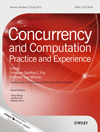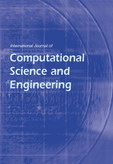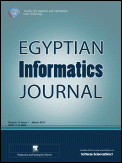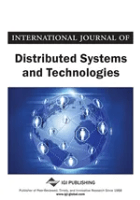
CONCURRENCY AND COMPUTATION-PRACTICE & EXPERIENCE
Scope & Guideline
Driving Innovation through Open Access Scholarship
Introduction
Aims and Scopes
- Concurrency Models and Algorithms:
Research on various models and algorithms that facilitate concurrent execution, particularly in distributed and parallel computing environments. - Cloud Computing and Edge Computing:
Exploration of cloud and edge computing paradigms, focusing on resource allocation, task scheduling, and optimization strategies to enhance performance and efficiency. - Machine Learning and Artificial Intelligence:
Application of machine learning and AI techniques in various domains, including healthcare, cybersecurity, and data analysis, emphasizing innovative approaches for problem-solving. - Blockchain Technology:
Investigation of blockchain applications, particularly in enhancing security, privacy, and data integrity in distributed systems. - Internet of Things (IoT):
Research on IoT architectures, protocols, and applications, particularly in smart cities, healthcare, and environmental monitoring. - Performance Optimization:
Studies focused on optimizing computational performance across various platforms, including GPUs and high-performance computing (HPC) systems. - Data Analytics and Big Data:
Methods and techniques for analyzing large datasets, including data mining, predictive analytics, and the application of big data technologies. - Cybersecurity:
Research on intrusion detection systems, secure communication protocols, and techniques for mitigating cyber threats in various computing environments.
Trending and Emerging
- Federated Learning:
An increasing number of publications focus on federated learning approaches, particularly in the context of privacy-preserving data analysis across distributed networks. - Blockchain Applications in Various Domains:
There is a growing interest in the application of blockchain technology beyond cryptocurrencies, particularly in sectors like healthcare, supply chain management, and data security. - AI and Machine Learning in Healthcare:
Research leveraging AI and machine learning for healthcare applications, including disease diagnosis, patient monitoring, and personalized medicine, is on the rise. - IoT and Smart City Technologies:
Emerging studies focus on the integration of IoT technologies within smart city frameworks, emphasizing real-time data analytics and resource management. - Performance Optimization Techniques for AI Models:
Research dedicated to optimizing the performance of AI models, especially in cloud and edge environments, is increasingly prevalent, reflecting the demand for efficiency. - Energy-efficient Computing Solutions:
There is a trend towards developing energy-efficient algorithms and protocols, particularly in the context of green computing initiatives and sustainability. - Real-time Data Processing and Analysis:
Growing interest in real-time processing techniques for big data applications, especially in IoT and streaming data scenarios, is evident in recent publications.
Declining or Waning
- Traditional Parallel Computing Techniques:
There is a noticeable decrease in research focused solely on traditional parallel computing techniques, as newer paradigms like cloud and edge computing gain traction. - Basic Network Protocols:
Research on foundational network protocols is becoming less frequent, with a shift towards more complex, application-specific protocols that address modern challenges. - Static Analysis Tools:
The frequency of papers dedicated to static analysis tools for software has declined, possibly due to the increasing focus on dynamic analysis and machine learning-based techniques. - Generalized Algorithms without Application Context:
Papers presenting generalized algorithms without specific application contexts are less common, as researchers are now favoring context-driven approaches that showcase practical implementations.
Similar Journals

International Journal of Computational Science and Engineering
Unleashing Knowledge in the Realm of Computational ScienceThe International Journal of Computational Science and Engineering, published by InderScience Enterprises Ltd, is a premier platform dedicated to the interdisciplinary field of computational science and engineering. With an ISSN of 1742-7185 and an E-ISSN of 1742-7193, the journal has been serving the academic community since its establishment in 2005 and will continue to do so until 2024. Notably categorized in the Q3 quartile for various domains, including Computational Mathematics, Software, and Hardware and Architecture, it holds respectable rankings in Scopus, evidencing its importance in advancing research and practice. While the journal is not open-access, it offers subscription options that ensure wide dissemination among researchers, professionals, and students. The journal aims to publish high-quality original research articles, survey papers, and case studies that contribute to the theoretical and practical aspects of computational techniques and methodologies. In a rapidly evolving digital landscape, this journal is a valuable resource for those seeking to push the boundaries of knowledge in computational science.

COMPUTING
Advancing the Frontiers of Computational ResearchCOMPUTING, published by Springer Wien, is a prestigious journal that has been at the forefront of computational research since its inception in 1966. With an ISSN of 0010-485X and an E-ISSN of 1436-5057, this journal is renowned for its rigorous peer-reviewed articles that span across various domains such as Computational Mathematics, Numerical Analysis, and Theoretical Computer Science. The journal consistently maintains a high impact factor, securing a Q1 ranking in multiple categories including Computational Mathematics and Computer Science Applications, thereby reflecting its influential role in shaping contemporary academic discourse. Although it does not currently offer open access options, the journal is widely accessible within academic institutions. Given its significant placement in Scopus rankings—most notably Rank #5 in Numerical Analysis—COMPUTING is an essential resource for researchers, professionals, and students who are engaged in advancing the field of computing. With its scope extending to innovative methodologies and theoretical advancements, COMFORTING continues to attract high-quality submissions, making it a cornerstone publication in the computational sciences.

Egyptian Informatics Journal
Empowering the Future of Informatics with Insightful StudiesEgyptian Informatics Journal, published by CAIRO UNIV, FAC COMPUTERS & INFORMATION, is an esteemed open-access publication that has been making significant contributions to the fields of Computer Science, Information Systems, and Management Science since its inception in 2010. With its ISSN 1110-8665 and E-ISSN 2090-4754, the journal stands out for its commitment to disseminating high-quality research, evidenced by its Q1 ranking in 2023 across multiple disciplines in Scopus, including a notable ranking of #15 in Decision Sciences and Management Science, and #44 in Information Systems. The journal's coverage spans from 2010 to 2024, making it a vital resource for researchers and practitioners looking to stay abreast of contemporary advancements in informatics. With an increasing impact and a remarkably growing readership, the Egyptian Informatics Journal provides an indispensable platform for scholarly dialogue and innovation in informatics, catering not only to researchers but also to professionals and students aiming to excel in these rapidly evolving fields.

Scalable Computing-Practice and Experience
Transforming Ideas into Scalable RealitiesScalable Computing - Practice and Experience, published by UNIV VEST TIMISOARA, stands as a significant platform for research and discourse in the realm of computer science, particularly focusing on practical applications and scalability in computing systems. Established in 2005, it aims to bridge the gap between theoretical advancements and real-world implementations, catering to a diverse readership that includes researchers, professionals, and students who are keen on exploring innovative computing practices. With an H-index reflective of its contribution and a Category Quartile of Q3 in Computer Science (miscellaneous), the journal offers a rich repository of knowledge, albeit currently not open access, from its base in Timisoara, Romania. The journal is included in Scopus rankings, underscoring its relevancy with a current rank of #144 out of 232 in the General Computer Science category, placing it in the 38th percentile. It invites contributions that expand the horizons of scalable computing methodologies and experiences, making it a vital resource for those engaged in this rapidly evolving field.

Journal of Internet Services and Applications
Illuminating the intersection of technology and society.Journal of Internet Services and Applications is a leading scientific platform dedicated to the dynamic and evolving field of Internet technologies and applications, published by SOC BRASILEIRA COMPUTACAO. Since its establishment in 2010, the journal has transitioned to an Open Access model, ensuring that research is freely available to a global audience, fostering innovation and collaboration among scholars. With an impact factor solidifying its credibility in the academic community, the journal is ranked Q2 in Computer Networks and Communications and Q3 in Computer Science Applications as of 2023, demonstrating its relevance and contribution to these critical fields. The journal covers a wide array of topics including network design, application development, and the intersection of technology and society, making it a vital resource for researchers, professionals, and students alike. With a commitment to fostering cutting-edge research, the Journal of Internet Services and Applications remains a vital conduit for knowledge and advancement in the rapidly evolving domain of Internet services.

Future Internet
Pioneering Insights in Internet Systems and ProtocolsFuture Internet is a leading open-access journal published by MDPI, dedicated to advancing the field of Internet technologies and communication networks. Since its inception in 2009, the journal has provided a platform for rigorous research and innovative ideas in the context of the rapidly evolving digital landscape. Based in Switzerland, it has established itself as a prominent publication, earning a commendable Q2 ranking in the category of Computer Networks and Communications for 2023. With a Scopus ranking of #87/395 and a notable 78th percentile, Future Internet fosters interdisciplinary collaboration, making valuable contributions to the understanding of Internet systems, protocols, and applications. Researchers, professionals, and students alike will find a wealth of insightful articles addressing both theoretical foundations and practical implementations. The open-access format ensures that all readers have immediate and unrestricted access to high-quality research, facilitating knowledge dissemination and informed decision-making in academia and industry alike.

Journal of Grid Computing
Connecting Research and Industry in Grid ComputingThe Journal of Grid Computing, published by Springer, stands as a pivotal resource in the dynamic field of computer science, particularly within the realms of Computer Networks and Communications, Hardware and Architecture, Information Systems, and Software. With an impressive Q1 ranking across these categories in 2023, the journal exemplifies excellence and rigor, catering to a diverse readership from researchers to industry professionals. Established in 2003, this esteemed journal is anchored in the Netherlands and releases cutting-edge research that reflects trends and advancements in grid computing technologies. Researchers can gain insights through its vast contributions, while institutions benefit from its prestigious standing within the SCOPUS framework, boasting high percentile ranks in multiple computer science categories. Though not open access, the journal provides unparalleled access options for institutional subscribers, solidifying its importance as a gateway to innovative discoveries in high-performance distributed computing.

International Journal of Distributed Systems and Technologies
Advancing the Future of Distributed Systems.Welcome to the International Journal of Distributed Systems and Technologies, a prominent academic platform published by IGI Global dedicated to advancing the field of distributed systems and technologies. With an ISSN of 1947-3532 and an E-ISSN of 1947-3540, this journal, established in 2010 and continuing through 2024, offers a unique venue for researchers, professionals, and students to disseminate their findings in the realms of computer networks, communications, hardware, and architecture. Despite its current placement in the Q4 quartile for both computer networks and communications and hardware and architecture categories in 2023, the journal is committed to fostering innovative solutions and interdisciplinary collaboration that can drive future advancements. Although not open access, contributions to this journal not only receive rigorous peer review but also have the potential to significantly impact the community, underscored by a focus on applicable research that addresses the emerging challenges in technology. As part of a rich repository, the journal invites you to explore its latest issues and join in shaping the future of distributed systems.

Journal of Information Processing Systems
Catalyzing Collaboration in Information Systems ResearchJournal of Information Processing Systems, published by the Korea Information Processing Society, serves as a pivotal platform in the fields of Information Systems and Software, catering to an audience of researchers, professionals, and students. With an ISSN of 1976-913X and an E-ISSN of 2092-805X, this journal has established its presence since its inception in 2012, continually contributing valuable insights and advancements through 2024. Notably, it has achieved a Q3 ranking within its respective categories, reflecting its ongoing commitment to quality research, evidenced by its Scopus rankings—#221 out of 394 in Information Systems and #263 out of 407 in Software. Although it currently does not offer Open Access, the journal emphasizes robust research methodologies and innovative solutions, making it an essential resource for those engaged in the rapidly evolving domain of information processing. With its base located in Seoul, South Korea, the journal remains dedicated to fostering collaboration and knowledge exchange in the global community.

International Journal of Networked and Distributed Computing
Pioneering Research in Networked SystemsWelcome to the International Journal of Networked and Distributed Computing, published by SpringerNature, a premier outlet for cutting-edge research in the realms of computer networks and distributed computing systems. Established as an Open Access journal since 2013 and based in the Netherlands, this publication strives to disseminate high-quality, peer-reviewed studies that address the complexities of contemporary computing challenges. With an impact factor that reflects its growing influence—positioned in the Q3 category for both Computer Networks and Communications and Computer Science Applications—this journal serves as a pivotal resource for scholars and practitioners aiming to advance knowledge and innovation in this rapidly evolving field. The journal encompasses diverse topics, from network protocols to distributed algorithms, ensuring that researchers, professionals, and students can find relevant insights and methodologies to inform their work. Join us in exploring the depths of networked and distributed computing, contributing to a collaborative academic environment that shapes the future of technology.